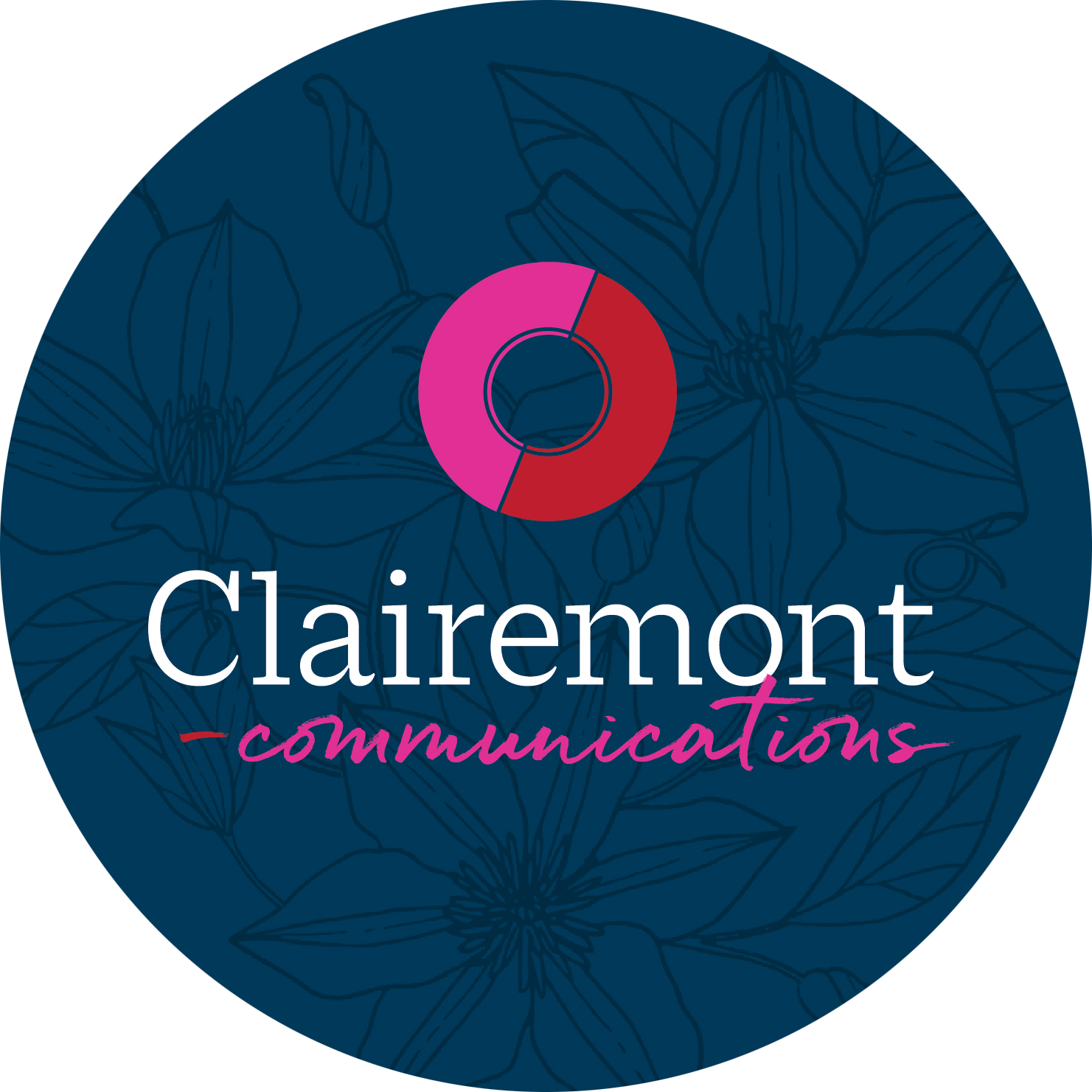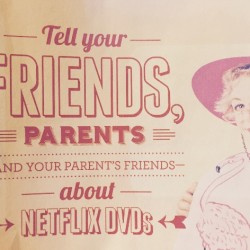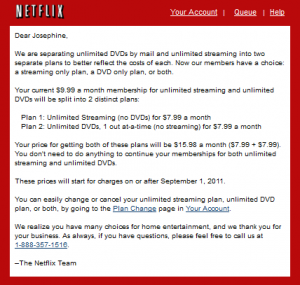The way we consume entertainment has changed. More and more of us are using online streaming services to watch movies and television at a time and location that fits our busy schedules. Netflix is leading the charge with more than 40 million US customers using its service – clearly its doing something right. However, Netflix recently caught my eye for something it did wrong. Did you happen to catch the typo in the above picture? If you didn’t, take another look.
It’s the apostrophe in “parent’s friends.” The way it reads, it’s as though Netflix is asking that you tell only one of your parent’s friends. The possessive apostrophe is quite possibly my biggest punctuation challenge. The Associated Press Stylebook (AP Style) rules for forming possessive words are fairly straightforward.
- The possessive of a singular noun is formed by adding an apostrophe and “s” to the word.
- The possessive of a plural noun is formed by adding only an apostrophe when the noun ends in “s.“
However, there are plenty of exceptions to the rules. For example, what do you do when the word is a singular noun that already ends in “s”? Well, it depends on the word following the noun. If it doesn’t start with “s,” you should add an apostrophe and “s.” However, if the word immediately following the noun does start with “s,” just add the apostrophe. E.g. hostess’s invitation versus hostess’ seat.
Whew! As you can see, it gets tricky fast once you start noting the exceptions, and that’s why my best advice is to keep the AP Stylebook close by at all times.
Perhaps the possessive apostrophe is Netflix’s Achilles’ Heel, but chances are this is just a case of a typo that was overlooked. Either way, hopefully it will help you pay closer attention to the use of apostrophes – whether writing copy of your own, or seeking entertainment outside of steaming online services in the form of a book or magazine.



